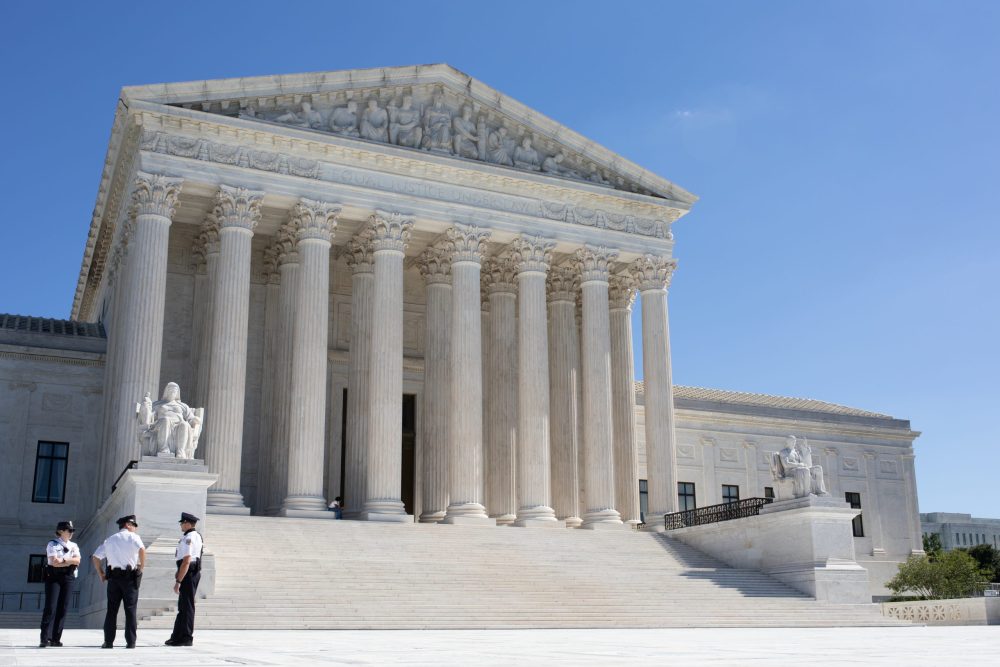WASHINGTON – Growing up as the oldest child in a single-parent home, Brittani Williams longed to leave her Baton Rouge, Louisiana, home for better opportunities and challenged herself to be a role model for her siblings.
“It was my charge given to me by me to get a college degree so that I could show my siblings that they could do the same,” said Williams, who is now a senior policy analyst in higher education for The Education Trust, an advocacy organization that promotes educational equity.
Although going to college changed her life, the financial impact was stressful.
“I’m a student loan borrower. I didn’t want to be, but because of the circumstances, the lack of wealth in my family, I had to be a borrower,” Williams said. “That was my choice, my option, because (not) getting a college degree was not an option for me.”
Her experience is far from isolated: 45 million Americans have federal student loan debt totaling $1.6 trillion, according to the White House.
And research and polling has shown that student debt is linked to increased anxiety and depression. An upcoming Supreme Court decision on student debt relief could only add to the stress.
To address the rising amount of higher education debt, President Joe Biden introduced a student loan relief plan in August 2022 that would forgive up to $10,000 in debt per individual and $20,000 for those who received a Pell Grant.
But now, two legal challenges to the plan have reached the Supreme Court, which could shut down the forgiveness plan.
“People take out student loans with huge hopes and dreams. It’s supposed to get them through this degree that’s going to launch them into a career and help them achieve the American dream,” said Sabrina Cereceres, special project manager at the Student Debt Crisis Center, an organization that helps student loan borrowers navigate repayment options.
“(But) when it comes to time to repay their loans, they’re making payments, they’re trying to navigate this repayment system, and then, you know, a lot of these borrowers just see their account balances go up and up,” Cereceres said.
Borrowers are now anxiously awaiting the Supreme Court’s ruling decisions on whether the federal loan forgiveness plan is valid.
The legal challenges come in the midst of an existing mental health crisis.
A majority of Americans – 54% – has reported experiencing mental health issues related to student debt, according to a September poll by ELVTR, a virtual learning platform.
The survey of 2,000 people between 18 and 67 with some college experience revealed that 56% said they suffered anxiety due to their student debt; 32% reported depression, 20% insomnia and 17% panic attacks.
The mental toll of student debt especially affects Black borrowers and students who come from low-wealth backgrounds, who are already disproportionately undertreated for mental health.
In many studies and research papers that have investigated this phenomenon, two major solutions to the stress of student loans are getting assistance from parental wealth and securing high-paying jobs.
The Supreme Court heard arguments on Feb. 28 in two legal cases challenging the constitutionality of Biden’s plan. Protesters and leaders from advocacy groups clustered around the court with colorful signs and loudspeakers, chanting in the direction of the justices inside to allow the relief plan to go through.
The uncertainty of policy surrounding college affordability and whether loans will be forgiven may even add to existing anxiety for borrowers, according to Erica White, a research scholar at the Center for Public Health Law and Policy.
Many borrowers don’t even know when they’ll have to start payments again as the Biden administration has continued to push a COVID-19 emergency loan payment pause into 2023. Waiting , and waiting for a high court decision adds to that unpredictability, she said.
“They’re just feeling very jaded with the Supreme Court,” White said. “I would imagine that just adds to the lack of trust and the stress that everyone is experiencing right now.”
Student debt is a public health concern, according to White.
“This court is just really not motivated by public health data,” White said.
Even if the conservative majority on the Supreme Court invalidates Biden’s plan, Williams said that she and other advocates will continue to explore other alternatives to make college more affordable.
“We, as in stakeholders in higher education reform, we should not count it as a loss because there is more work to be done,” Williams said. “I think that my message would be, you know, to be hopeful.”

